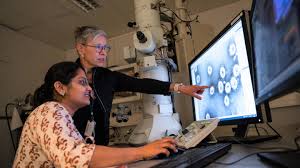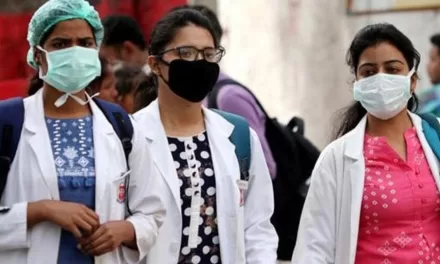Jyväskylä, Finland – A groundbreaking development from the University of Jyväskylä promises to significantly alter the landscape of viral disease prevention. Researchers have discovered that resin-treated plastics can deactivate viruses swiftly, marking a pivotal advancement in the fight against COVID-19.
Under the BIOPROT project, a collaborative effort aimed at developing bio-based antiviral materials for protective gear, scientists are tackling the persistent threat posed by viruses on solid surfaces. Professor Varpu Marjomäki, a Cell and Molecular Biology expert at the University of Jyväskylä, leads a team investigating how various surfaces can mitigate the transmission of viral diseases. Their research focuses on the survival duration of coronaviruses on different surfaces under varying humidity and temperature conditions.
“This information would be of direct benefit to both consumers and industry. Antiviral functionality could be used, for example, in restaurants, kindergartens, public transport, and stores, on different surfaces, where viruses can potentially stay infective for a long time and spread easily,” says Professor Marjomäki.
Plastic Surfaces with Antiviral Capabilities
The team at the Nanoscience Center of the University of Jyväskylä conducted studies on resin-embedded plastic surfaces against both the seasonal human coronavirus and SARS-CoV-2. The results were striking: untreated plastic surfaces harbored infective viruses for over two days, whereas resin-treated plastic demonstrated significant antiviral activity within fifteen minutes and excellent efficacy after thirty minutes.
“Plastic treated with resin is therefore a promising candidate for an antiviral surface,” explains Marjomäki.
Research Collaboration with Premix Oy
This research is part of the broader BIOPROT project, funded by Business Finland and executed in collaboration with Finnish company Premix Oy. The initiative aims to explore and develop antiviral solutions alongside industry partners, fostering the creation of new products to combat future pandemics and epidemics.
“The project aims to study existing and develop new antiviral solutions in cooperation with companies such as Premix Oy. This will help to create new products for future pandemics and epidemics,” says Marjomäki.
Pioneering Bio-Based and Antimicrobial Materials
The BIOPROT project involves six universities and research institutes, coordinated by LUT University. The goal is to develop sustainable, safe material solutions for protective equipment, focusing on respiratory and surgical masks as well as reusable masks for industrial use. Additionally, the project aims to enhance Europe’s self-sufficiency in products and materials.
At the University of Jyväskylä, Marjomäki’s team is at the forefront of developing bio-based antiviral materials. “Effective and nature-derived antivirals are available in Finland and could be used for the functionalization of masks and surfaces. Presently, there are only few bio-based functional solutions available, so we have an opportunity to be pioneers in this field,” Marjomäki emphasizes.
Conclusion
The study, titled “Antiviral action of a functionalized plastic surface against human coronaviruses,” was published in Microbiology Spectrum on January 16, 2024. It underscores the potential of resin-treated plastics in reducing viral transmission, highlighting a significant leap forward in public health safety measures amid the ongoing challenges of viral pandemics.
This innovative approach not only promises to mitigate the spread of COVID-19 but also sets the stage for more resilient and sustainable protective measures in various sectors, from healthcare to public transportation.
Reference: Shroff, S., Haapakoski, M., Tapio, K., Laajala, M., Leppänen, M., Plavec, Z., Haapala, A., Butcher, S. J., Ihalainen, J. A., Toppari, J. J., & Marjomäki, V. (2024). Antiviral action of a functionalized plastic surface against human coronaviruses. Microbiology Spectrum. DOI: 10.1128/spectrum.03008-23












